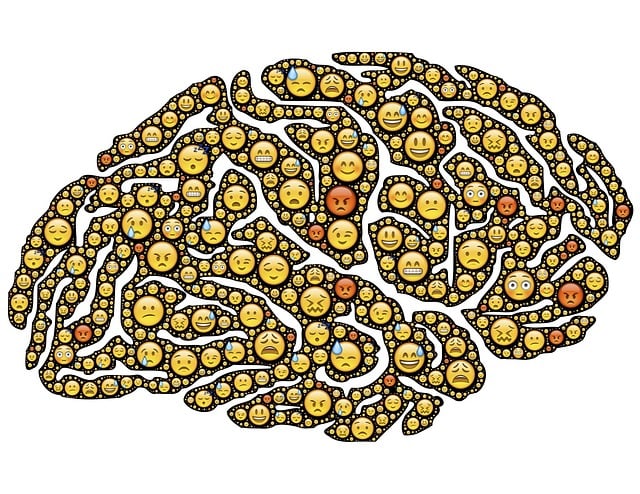Mental illness representation in media is often inaccurate, perpetuating stigma or ignoring the topic entirely. The Englewood Workplace Issues and Job Stress Therapy emphasizes the need for more authentic portrayals of mental health struggles and recovery to improve public understanding. In a fast-paced work environment, integrating therapy, open discussions, and peer support into workplace culture, along with community outreach programs, can significantly enhance employee well-being and reduce stress. Tailored mental health programs, including on-site therapy, workshops, and journaling exercises, empower employees to manage their mental health while fostering a supportive community. Effective risk management for mental health professionals is also crucial to maintaining trust and handling complex cases.
Mental illness representation in media has long been a subject of debate, influencing public perception and understanding. This article explores strategies to improve mental health support within workplaces, focusing on engaging with Englewood workplace issues and job stress through therapy integration. By examining the current landscape, we uncover proactive solutions that can foster healthier environments. Learn how these approaches challenge negative stereotypes and enhance employee well-being.
- Understanding Mental Illness Representation in Media: The Current Landscape
- Engaging with Workplace Issues and Job Stress: A Focus on Therapy Integration
- Proactive Solutions to Enhance Mental Health Support in the Workplace
Understanding Mental Illness Representation in Media: The Current Landscape

Mental illness representation in media has been a topic of growing interest and debate. The current landscape often paints a skewed picture, perpetuating stereotypes and misconceptions about mental health conditions. Media platforms, including television shows, movies, and news articles, play a significant role in shaping public understanding. Unfortunately, many portrayals fall into the trap of sensationalism or, conversely, avoid the subject altogether. This results in either exacerbating stigma or leaving audiences with an incomplete view of what mental illness truly entails.
Englewood Workplace Issues and Job Stress Therapy highlight the need for more nuanced representations. By integrating characters with authentic struggles and showcasing their journeys towards recovery, media can contribute to Depression Prevention and Coping Skills Development. Furthermore, Community Outreach Program Implementation strategies could be featured, offering viewers a glimpse into effective support systems and treatment options available. Such positive portrayals have the potential to foster empathy, encourage help-seeking behaviors, and promote mental health awareness in diverse communities.
Engaging with Workplace Issues and Job Stress: A Focus on Therapy Integration

In today’s fast-paced work environments, engaging with workplace issues and job stress has become a pressing concern. Mental illness representation in media plays a pivotal role in shaping societal perceptions and fostering understanding among colleagues. By integrating therapy into the workplace, organizations can significantly contribute to improving employee well-being. This approach not only promotes open discussions about mental health but also empowers employees to seek support without stigma. Therapy integration programs can include regular sessions with professional counselors, peer support groups, and mindfulness workshops tailored to address common workplace stressors.
Implementing a community outreach program focused on inner strength development can further enhance these initiatives. Such programs encourage employees to build resilience, develop coping strategies, and connect with supportive networks both within the organization and the broader community. Moreover, risk management planning for mental health professionals is essential to ensure that those providing therapy are equipped to handle workplace-related challenges effectively. This includes training in recognizing and managing complex cases, as well as implementing robust confidentiality protocols to foster trust among employees participating in these support systems.
Proactive Solutions to Enhance Mental Health Support in the Workplace

In tackling Englewood Workplace Issues and Job Stress Therapy, proactive solutions are essential to fostering a healthier and more supportive work environment. One effective strategy involves implementing tailored mental health programs that cater to the unique challenges faced by employees. This can include on-site therapy sessions, where professionals offer counseling services, ensuring accessibility without adding to an employee’s stress. Moreover, encouraging Self-Esteem Improvement through workshops or training sessions can empower individuals to better manage their mental wellness.
Additionally, fostering a culture of open dialogue about mental health is crucial. Regular Mental Wellness Journaling Exercises can provide guidance and support, allowing employees to reflect on their experiences and emotions in a safe, private space. These exercises can be complemented by Community Outreach Program Implementations, connecting employees with local support networks and resources. Such initiatives not only enhance individual well-being but also create a more compassionate and resilient workplace community.
Media representation of mental illness plays a pivotal role in shaping societal understanding. By integrating more nuanced and accurate portrayals, we can reduce stigma and foster empathy. In the context of work environments, proactive solutions like therapy integration and enhanced support systems are essential. Addressing Englewood workplace issues and job stress through these means ensures a healthier, more supportive atmosphere for all employees, ultimately contributing to improved mental well-being.














